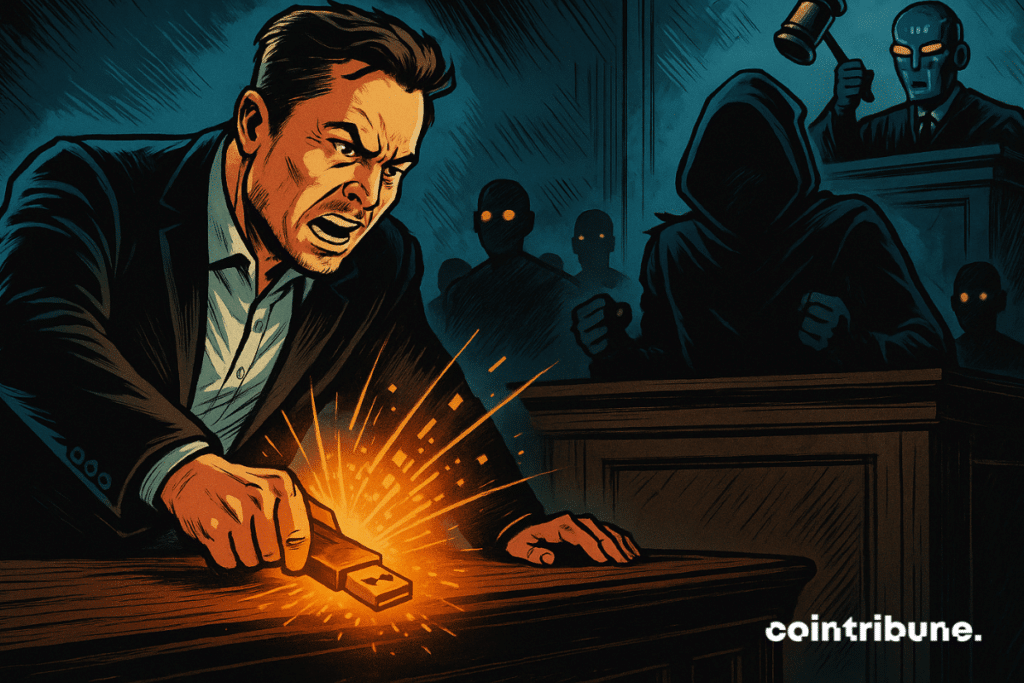Elon Musk’s xAI Sues OpenAI Over Alleged Trade Secret Theft Amid Ongoing AI Rivalry
Tech titan Elon Musk's artificial intelligence venture xAI has filed a bombshell lawsuit against OpenAI, accusing the rival AI lab of stealing trade secrets in an escalating corporate battle.
The Legal Showdown
xAI's legal team claims OpenAI systematically poached proprietary algorithms and research methodologies—allegations that could reshape the competitive landscape of artificial intelligence development. The lawsuit targets what Musk's company describes as 'patterned intellectual property theft' spanning multiple research domains.
Corporate Espionage or Healthy Competition?
Industry insiders note the timing coincides with both companies racing to deploy next-generation AI models. The filing suggests OpenAI bypassed ethical boundaries in its pursuit of market dominance, though skeptics counter that the litigation itself might be strategic positioning. Either way, legal fees are about to hit ATH—good news for law firms, at least.
Broader Implications
This confrontation exposes the cutthroat nature of AI development, where billions in potential revenue hinge on technological advantages. The outcome could set precedents for how tech giants protect—or pillage—each other's innovations moving forward. One thing's certain: when billionaires clash, lawyers always win.
 Read us on Google News
Read us on Google News
In Brief
- xAI has filed a lawsuit against OpenAI in California, initiating legal proceedings over alleged trade secret violations.
- The complaint alleges former xAI employees shared confidential materials with OpenAI and that the company recruited them to access sensitive information.
- OpenAI denies the allegations and has called the lawsuit part of Elon Musk’s ongoing harassment.
Alleged Trade Secret Theft by Former xAI Employees
The complaint alleges that OpenAI broke both California and federal laws by inducing former xAI employees to take and share confidential materials. The filing names researcher Xuechen Li, engineer Jimmy Fraiture, and a senior finance executive as the employees involved. xAI argues that by recruiting these individuals and accessing sensitive information, OpenAI secured knowledge that gave it an unfair competitive edge.
The complaint details a series of incidents in which OpenAI’s Tifa Chen allegedly communicated with Li through the Signal messaging app. According to xAI, Li uploaded the company’s entire source code to a personal cloud account, deleted evidence of the action, and later downloaded the material to his laptop. On July 28, OpenAI is said to have offered Li millions of dollars in exchange for the code. The statement reads:
Chen communicated OpenAI’s offer of multiple millions of dollars. This huge bounty was OpenAI’s quid to Li’s quo—the xAI source code and presentation he pilfered from xAI—and was part of OpenAI’s larger scheme to obtain access to critical xAI trade secret information to neutralize xAI while providing an unfair advantage to OpenAI to the detriment of consumers.
xAI further claims that Li later admitted to taking confidential information. The company wrote that “Li, with his attorney present, admitted in a handwritten document he provided to xAI that he misappropriated xAI’s source code and presentation on xAI’s highly valued training and tuning techniques.”
The lawsuit also claims that Fraiture committed similar misconduct by moving confidential xAI files from his work laptop onto a personal device via AirDrop. Allegedly, there were at least five transfers or attempts on July 31, and the complaint notes that Fraiture admitted to keeping a copy of the confidential files on his personal laptop for several weeks.
Legal Experts Weigh In on the xAI vs OpenAI Dispute
Legal experts offer their perspective on the case and what it could mean for both companies:
- Ishita Sharma, managing partner at Fathom Legal, said xAI will need to define its trade secrets broadly, covering code as well as strategic and operational elements.
- Sharma noted that recruiters’ involvement adds complexity, as liability depends on whether they acted on OpenAI’s behalf and whether the company was aware of their actions.
- She said OpenAI could defend itself by proving independent development, supported by time-stamped records like Git commits, research notes, supplier invoices, or emails.
- Navodaya Singh Rajpurohit, legal partner at Coinque Consulting, said the case centers on employee poaching, and whether it is unlawful depends on evidence beyond what is in the filing.
OpenAI Calls Lawsuit Part of Musk’s Harassment
OpenAI has denied the allegations, with a company spokesperson describing the lawsuit as part of what it calls Musk’s ongoing harassment and maintaining that the claims are false.
The case adds another chapter to a broader legal conflict between Musk and OpenAI. Musk, who co-founded OpenAI in 2015 and left the board in 2018, previously sued the company over its shift to a for-profit structure, while OpenAI has filed a countersuit alleging harassment.
Maximize your Cointribune experience with our "Read to Earn" program! For every article you read, earn points and access exclusive rewards. Sign up now and start earning benefits.

